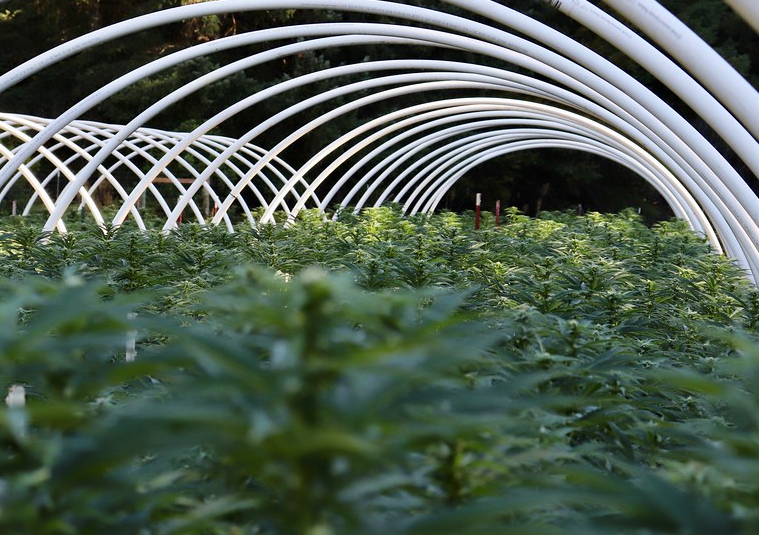North Carolina Senator Thom Tillis has sparked a heated debate by urging the Department of Justice to probe a tribal cannabis business, claiming it markets to kids and crosses state lines illegally. This move pits federal oversight against tribal sovereignty, raising questions about the future of legal weed on Native lands. What could this mean for the Eastern Band of Cherokee Indians and cannabis reform nationwide?
Senator Thom Tillis, a Republican from North Carolina, made waves during an October 7, 2025, Senate Judiciary Committee hearing. He pressed U.S. Attorney General Pam Bondi to investigate the Eastern Band of Cherokee Indians’ cannabis operation. Tillis alleged the tribe sells products that appeal to children and transports marijuana beyond tribal boundaries, violating federal laws.
These claims have ignited controversy, as the tribe operates on sovereign land where cannabis sales are legal for adults over 21. Reports show the business, which opened in 2024, has become a key economic driver for the tribe in western North Carolina.
Tillis pointed to packaging that mimics candy and reports of products showing up in non-tribal areas. He described the operation as a “growing concern” in his state, where recreational marijuana remains illegal outside tribal lands.
The senator’s push comes amid broader tensions over cannabis policy. North Carolina has not legalized recreational use statewide, but the tribe voted to allow it on their 57,000 acres in 2023, making them the first legal sellers in the state.
Tribe Fires Back Against Allegations
Leaders of the Eastern Band of Cherokee Indians quickly rejected Tillis’s statements as misleading and harmful. Principal Chief Michell Hicks called the remarks “inaccurate and offensive,” stressing that the tribe follows strict rules to prevent sales to minors.
The tribe’s cannabis retailer requires buyers to be at least 21 and uses ID checks at the door. Hicks noted that their operation boosts jobs and revenue for the community, with sales starting for non-medical users in 2024.
Tribal officials argue this is a matter of self-determination, protected under federal law that recognizes Native sovereignty. They say any investigation ignores the tribe’s right to govern its own affairs.
In a statement, the tribe highlighted how cannabis sales have funded health programs and education. This defense echoes past clashes, like when North Carolina’s senators raised similar concerns in March 2024.
Critics of Tillis wonder if his stance stems from opposition to cannabis expansion rather than specific violations. The tribe insists all activities stay within legal bounds.

Broader Impact on Cannabis Laws
This dispute highlights the patchwork of cannabis rules across the U.S. While 24 states have legalized recreational marijuana, federal law still classifies it as a Schedule I drug, creating conflicts with tribal enterprises.
The Eastern Band’s program began after a 2023 referendum where members voted overwhelmingly to legalize possession and use on tribal land. Unofficial results showed strong support, turning the tribe into a pioneer in North Carolina.
Experts say such tribal ventures test the limits of federal enforcement. A 2014 Department of Justice memo allowed tribes to grow and sell cannabis without interference, as long as they meet certain guidelines.
Yet Tillis’s call for a probe could set a precedent. If the DOJ finds issues, it might restrict similar operations elsewhere.
- Tribal cannabis sales generated millions in revenue last year, per industry estimates.
- They support over 100 jobs in the community.
- Products include edibles and flowers, all tested for safety.
This case also ties into national debates. A 2025 state advisory council in North Carolina discussed regulating hemp, showing slow progress toward broader reform.
Historical Context and Future Outlook
The Eastern Band has long asserted its rights, drawing from treaties that grant autonomy. Their cannabis push started in 2023, amid growing acceptance of marijuana for medical and economic benefits.
Back then, a vote made weed legal on tribal lands, defying state bans. This move drew praise from advocates who saw it as a step toward equity for Native communities hit hard by past drug policies.
Now, with Tillis involved, the situation could escalate. Attorney General Bondi agreed to “look into” the matter during the hearing, signaling potential federal action.
Some see this as part of a Republican effort to curb cannabis growth. Tillis has said he’s not against marijuana but wants states to opt in with federal taxes.
Looking ahead, the investigation’s outcome might influence other tribes. For instance, similar programs in states like New Mexico operate without major federal pushback.
A table below outlines key milestones in the tribe’s cannabis journey:
| Year | Event |
|---|---|
| 2023 | Tribe votes to legalize marijuana on lands |
| 2024 | Retail sales open to adults 21+ |
| 2025 | Tillis calls for DOJ probe |
This timeline shows steady progress amid challenges.
The clash between Senator Tillis and the Eastern Band of Cherokee Indians underscores deep divides over cannabis, sovereignty, and federal power. As the DOJ steps in, many watch closely, hoping for a resolution that respects tribal rights while addressing real concerns. This story reminds us how local actions can ripple into national policy shifts, affecting lives from rural North Carolina to Capitol Hill. It stirs emotions of frustration over perceived overreach and hope for fair treatment of Native economies.
